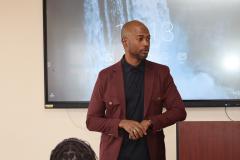Vice Chancellors Weekly Higher Education Digest: Sep 10, 2018
Varsity bosses call for new funding mechanisms By Ouma Wanzala Sunday Nation
Eight vice-chancellors of leading universities in Africa want a new funding mechanisms created to support research-intensive institutions. They also want African governments to increase their support for research in general and provide targeted funding for research-intensive universities — in addition to the usual operational funds and tuition income currently available to these institutions. http://edition.nationmedia.com/html5/reader/production/default.aspx?pnum=24&edid=2ad2e481-0c1d-4091-9a46-36f06cc638b9&isshared=true
Original article appeared The Conversation
AFRICA-CHINA: China ramps up support for African higher education, By Esther Nakkazi UNIVERSITY WORLD NEWS
China this week pledged to offer even more support to Africa for higher education and vocational training for development. At the 2018 Beijing Summit of the Forum on China-Africa Cooperation (FOCAC), the Chinese government said it will honour its previous promises and increase opportunities for Africa’s young people – and pledged to provide Africa with 50,000 government scholarships and 50,000 training opportunities for seminars and workshops. It will also invite 2,000 young Africans to visit China for exchanges. http://www.universityworldnews.com/article php?story=20180907083412817
AFRICA: Helping young scientists to achieve their potential, By Anna Coussens, Abidemi James Akindele, Badre Abdeslam, Fridah Kanana and Mona Khoury-Kassabri UNIVERSITY WORLD NEWS
Young African scientists face persistent barriers which cause them to leave their own countries, and even academia. This means the continent’s work force loses highly trained people who are crucial for scientific and technological advancement, and for economic development. It’s estimated that 20,000 highly educated professionals leave the continent annually, with up to 30% of Africa’s scientists among them. http://www.universityworldnews.com/article.php?story=20180903144521762
SOUTH AFRICA: Helping universities to open the door to donor support, By Nazli Abrahams UNIVERSITY WORLD NEWS
Funding higher education has engendered considerable public discussion and debate since the ‘Fees Must Fall’ movement gathered momentum in South Africa in 2015. So it is heartening to share the results of an imaginative, long-term project providing support to university fundraising offices. http://www.universityworldnews.com/article.php?story=20180904082839160
Digital transformation still in the early stages, By Nadine Burquel and Anja Busch UNIVERSITY WORLD NEWS
In the digital world, digital devices and technologies are everywhere, connecting people in their social and professional lives. What are the implications for higher education institutions? How can they best prepare students for the digital world, not only by delivering cutting-edge knowledge about the opportunities and challenges technology offers, but also by making students fully digitally competent for new jobs that do not even exist today? http://www.universityworldnews.com/article.php?story=20180904152118628
Canada’s Affordability Policies Are Worth a Good Long Look, By Alex Usher INSIDE HIGHER ED
Canada is perhaps the one country which is getting “high tuition/high aid” right, and for that reason is worth careful study. Canada does not get a lot of love from international higher education scholars. Partly, it’s because no one wants to wade through the tedium of deciphering our ten different systems, and partly it’s because very few innovative ideas in higher education emerge here (we’re good at copying, less so at originating). But in affordability policy, Canada has been genuinely – if somewhat accidentally – innovative. Canada is perhaps the one country which is getting “high tuition/high aid” right, and for that reason is worth careful study. http://www.insidehighered.com/blogs/world-view/canada’s-affordability-policies-are-worth-good-long-look
Beware! Academics are getting reeled in by scam journals, By Alex Gillis UNIVERSITY AFFAIRS CANADA
The number of predatory publishers is skyrocketing – and they’re eager to pounce on unsuspecting scholars. This past year, when an undergraduate biology student at the University of the Fraser Valley approached dean of science Lucy Lee for $2,000 to publish a paper in an academic journal, Dr. Lee had immediate concerns about the request. She’d had a bad experience with the journal in question, the International Journal of Environmental Research and Public Health, while doing a review for the publication. She discovered a lack of rigour in some of the journal’s articles, was alarmed at its many retractions and corrections, and had concerns with the journal’s practice of publishing an “acknowledgement” issue with a very long list of reviewers to make it look credible. https://www.universityaffairs.ca/features/feature-article/beware-academics-getting-reeled-scam-journals/
How Colleges Help Students Find Purpose in Their Work, By Kelly Field THE CHRONICLE OF HIGHER EDUCATION
The notion that liberal-arts colleges ought to prepare students for lives of purpose isn’t new. Proponents of the colleges would argue that it cuts to the core of their mission. But until recently, many college leaders assumed that if they started with smart students and gave them a well-rounded education, everything would fall into place, says Mark Peltz, dean for careers, life, and service at Grinnell College. Career exploration "was an afterthought — it wasn’t an institutional priority." https://www.chronicle.com/article/How-Colleges-Help-Students/244421
The Promise of the Experiential Liberal Arts, By Tim Cresswell THE CHRONICLE OF HIGHER EDUCATION
Experiential education, an attempt to break down the barrier between classroom learning and everyday life, has long been a staple of professional disciplines. For the liberal arts, the partnership hasn’t come naturally. For many liberal-arts faculty members, an education should be for its own sake, not for job preparation. https://www.chronicle.com/article/The-Promise-of-the/244419
If academics don’t acknowledge nuance, who will? Terri Apter THE TIMES HIGHER EDUCATION
Gender bias in the academy is all too real, but we should be just as wary of confirmation bias, says Terri Apter. Gender equality – and the unconscious biases that challenge it – is now a mainstream concern in academic life. Codes of conduct are drawn up in efforts to support dignity at work and at study. Efforts are made to free senior academic appointments from gender bias. Many believe there is a long way yet to go, but there is also a real danger of failing to see what has been achieved. https://www.timeshighereducation.com/opinion/if-academics-dont-acknowledge-nuance-who-will
The fragile generation and the coddling of young minds By Matthew Reisz THE TIMES HIGHER EDUCATION
Jonathan Haidt tells Matthew Reisz how a moral culture of ‘safetyism’ took root in today’s students, who view the use of any word that can cause offence as an act of violence. Jonathan Haidt describes his new book, The Coddling of the American Mind, as “a mystery story”. Something strange and significant started happening on campuses around 2015, he and his co-author Greg Lukianoff believe, which can be summed up in the word “safetyism” – and they want to know why. https://www.timeshighereducation.com/features/fragile-generation-and-coddling-young-minds






